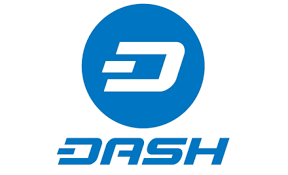A Dash Primer - Digital Cash You Can Spend Anywhere

"The Dash Platform has the potential to rule them all." This statement by Dash Product Owner, Dana Alibrandi, hints to the value that the platform provides in the cryptocurrency space. On Thursday, May the 23rd, Blockchain at UCLA hosted Dana Alibrandi for their first event of the spring to about what Dash is, how the platform works, and its potential use cases.
What is Dash?
Initially launched in 2014, Dash is a leading cryptocurrency and p2p network that allows individuals to send money to anyone, anywhere, for a nominal network fee (usually less than$0.01 USD). With the mission of building the most user-friendly payments network in the world, what makes Dash different is its focus on speed, capacity, costs, and ease-of-use. Over the last couple of years, Dash has made platform innovations with features like the MasterNode Tier, InstantSend, and a 2MB Block Size.
What are Master Nodes?
Master nodes are powerful servers backed by collateral held in Dash and are designed to provide advanced services and governance on the blockchain. Masternodes host full copies of the blockchain and offer a different second layer of services to the network, facilitating advanced functions such as InstantSend, PrivateSend, and usernames on the blockchain. Collateral denominated in Dash must back Masternodes, and in return, their operators receive regular payment for the services they provide to the network. As highly committed custodians of the project, masternode operators have the opportunity to vote each month on up to 10% of the block reward to fund community projects supporting the Dash ecosystem.
What is InstantSend?
InstantSend is a feature of the Dash protocol that utilizes transaction locking and masternode consensus to facilitate instantaneous transactions on the Dash blockchain. InstantSend allows Dash to compete with existing centralized payment platforms such as VISA, which offer rapid transaction times.
How does the Dash Platform Work?
Dash platform is a space for developers to build custom applications that leverage the Dash network and blockchain. Dash Platform has two main architectural components--Drive (decentralized storage) and DAPI (decentralized API). These components turn the Dash p2p network into a cloud through which developers will be able to integrate their applications. To integrate their application to the Dash Platform users register their app and its data objects using a data contract. Next, they secure and save their data by submitting state transitions.
Data contracts are used to define custom data structures for applications, storing that application on their masternode network, and notarizing that data via their blockchain.
In exchange for hosting this data, masternode owners will be compensated using fees charged to users, similar to traditional transaction fees. Data is uploaded to Drive via state transitions, which are unique transactions that describe a change in your application's state.
What are the Use Cases for Dash?
Some potential use cases for Dash include chain-of-custody, digital rights management, supply chain, property records, and audit management.
Blockchain at UCLA's hosting of Dana Alibrandi helped students better understand what Dash is, how the platform works, and its use cases. This event helped better-prepared attendees to study and work with blockchain by focusing on both the business and technical perspective of Dash. Going forward, Blockchain at UCLA will continue to put on similar events and bring in leaders in the blockchain community to help push UCLA towards becoming a powerhouse for blockchain education.
To learn more: https://www.dash.org/
--
Chad has volunteered to clean up beaches throughout California, was a nationally ranked video game player, and played quarterback for over a decade. Currently, he is a Technology Consultant and Blockchain Advisor at Oracle and enjoys writing about the intersection of people, business, and technology. You can follow him on Twitter and Medium, or send any inquiries to chad.blickenstaff@oracle.com -- don't worry, he responds promptly.
https://button.like.co/cracacoa